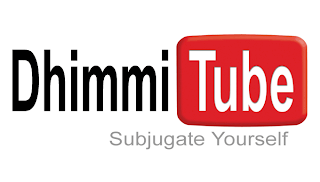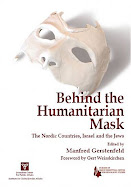That Google is engaged in political censorship comes to no surprise among bloggers and people who are familiar with those issues - Now, at last, Google admits that they are censoring content.
Google is in particular behaving bad regarding YouTube and Orkut. On Orkut Google permits hatred, forums of pure content of hatred against Jews, Israel and Denmark to name some examples, jihadi recruitment, terrorist forums while Google removes forums for freedom of speech, anti terrorist forums - An example of Google censorship is if you search for Orkut Watch Blog it does not appear in your google search, google in the best mentality of arrogance is cracking down on dissent or criticism by simply censoring the blog in question which exposes google's active support of terrorism and censorship.
.
Pamela Geller who runs Atlas Shrugs has been blacklisted by google or 'Sandboxed' as they call it for writing about Obama's birth certificate.
.
I wonder what kind of political motivations are behind googles undemocratic and illiberal actions protecting and promoting terrorism and sites of hatred against our citizens and countries.
.
From Atlas Shrugs.
.
“Right now, we’re trusting Google because it’s good, but of course, we run the risk that the day will come when Google goes bad,” Wu told me.
.
It's the New York Times talking about google censorship, so you know it is a politically correct kind of censorship --but underneath the tuchas kissing, Google admits to massive information manipulation:
.
Google's Gatekeeper NY Times (hat tip Bare Naked Islam)
Today the Web might seem like a free-speech panacea: it has given anyone with Internet access the potential to reach a global audience. But though technology enthusiasts often celebrate the raucous explosion of Web speech, there is less focus on how the Internet is actually regulated, and by whom. As more and more speech migrates online, to blogs and social-networking sites and the like, the ultimate power to decide who has an opportunity to be heard, and what we may say, lies increasingly with Internet service providers, search engines and other Internet companies like Google, Yahoo, AOL, Facebook and even eBay.
Google's Gatekeeper NY Times (hat tip Bare Naked Islam)
Today the Web might seem like a free-speech panacea: it has given anyone with Internet access the potential to reach a global audience. But though technology enthusiasts often celebrate the raucous explosion of Web speech, there is less focus on how the Internet is actually regulated, and by whom. As more and more speech migrates online, to blogs and social-networking sites and the like, the ultimate power to decide who has an opportunity to be heard, and what we may say, lies increasingly with Internet service providers, search engines and other Internet companies like Google, Yahoo, AOL, Facebook and even eBay.
.
The most powerful and protean of these Internet gatekeepers is, of course, Google. With control of 63 percent of the world’s Internet searches, as well as ownership of YouTube, Google has enormous influence over who can find an audience on the Web around the world. As an acknowledgment of its power, Google has given Nicole Wong a central role in the company’s decision-making process about what controversial user-generated content goes down or stays up on YouTube and other applications owned by Google, including Blogger, the blog site; Picasa, the photo-sharing site; and Orkut, the social networking site. Wong and her colleagues also oversee Google’s search engine: they decide what controversial material does and doesn’t appear on the local search engines that Google maintains in many countries in the world, as well as on Google.com. As a result, Wong and her colleagues arguably have more influence over the contours of online expression than anyone else on the planet.
The most powerful and protean of these Internet gatekeepers is, of course, Google. With control of 63 percent of the world’s Internet searches, as well as ownership of YouTube, Google has enormous influence over who can find an audience on the Web around the world. As an acknowledgment of its power, Google has given Nicole Wong a central role in the company’s decision-making process about what controversial user-generated content goes down or stays up on YouTube and other applications owned by Google, including Blogger, the blog site; Picasa, the photo-sharing site; and Orkut, the social networking site. Wong and her colleagues also oversee Google’s search engine: they decide what controversial material does and doesn’t appear on the local search engines that Google maintains in many countries in the world, as well as on Google.com. As a result, Wong and her colleagues arguably have more influence over the contours of online expression than anyone else on the planet.
.
Check out how Google cops out on Youtube aka dhimmitube (owned by google) and their the jihad loving, Military hating leftard police . Here, for example is another jihadi propaganda video showing the murder of US servicemen. It violates several of YT's terms of service, including physical attack, use of explosives, promotes hatred and violence, etc. Please flag it, and any other similar videos from this user.
.
Iraq War For Jihad
Allahuakbar!!!
Allahuakbar!!!
.
More on the Times article and youtube below:
.
The volume of videos posted on YouTube is formidable — Google estimates that something like 13 hours of content are uploaded every minute. YouTube users can flag a video if they think it violates YouTube’s community guidelines, which prohibit sexually explicit videos, graphic violence and hate speech. Once flagged, a video is vetted by YouTube’s internal reviewers at facilities around the world who decide whether to take it down, leave it up or send it up the YouTube hierarchy for more specialized review. When I spoke with Micah Schaffer, a YouTube policy analyst, he refused to say how many reviewers the company employs. But I was allowed to walk around the office to see if I could spot any of them. I passed one 20-something YouTube employee after another — all sitting in cubicles and wearing the same unofficial uniform of T-shirt and jeans. The internal reviewers were identifiable, I was told, only by the snippets of porn flickering on their laptops.
.
The idea of a 20-something with a laptop in San Bruno (or anywhere else, for that matter) interpreting community guidelines for tens of millions of users might not instill faith in YouTube’s vetting process [...]
.
IT’S NOT ONLY FOREIGN COUNTRIES that are eager to restrict speech on Google and YouTube. Last May, Senator Joseph Lieberman’s staff contacted Google and demanded that the company remove from YouTube dozens of what he described as jihadist videos. (Around the same time, Google was under pressure from “Operation YouTube Smackdown,” a grass-roots Web campaign by conservative bloggers and advocates to flag videos and ask YouTube to remove them.) After viewing the videos one by one, Wong and her colleagues removed some of the videos but refused to remove those that they decided didn’t violate YouTube guidelines. Lieberman wasn’t satisfied. In an angry follow-up letter to Eric Schmidt, the C.E.O. of Google, Lieberman demanded that all content he characterized as being “produced by Islamist terrorist organizations” be immediately removed from YouTube as a matter of corporate judgment — even videos that didn’t feature hate speech or violent content or violate U.S. law. Wong and her colleagues responded by saying, “YouTube encourages free speech and defends everyone’s right to express unpopular points of view.” In September, Google and YouTube announced new guidelines prohibiting videos “intended to incite violence.”
.
In addition to Lieberman, another outspoken critic of supposed liberal bias at YouTube and Google is Michelle Malkin, the conservative columnist and blogger. Malkin became something of a cause célèbre among YouTube critics in 2006, when she created a two-minute movie called “First, They Came” in the wake of the violent response to the Danish anti-Muhammad cartoons. After showing pictures of the victims of jihadist violence (like the Dutch filmmaker Theo Van Gogh) and signs declaring “Behead Those Who Insult Islam,” the video asks, “Who’s next?” and displays the dates of terrorist attacks in America, London, Madrid and Bali.'
.
Nearly seven months after she posted the video, Malkin told me she was “flabbergasted” to receive an e-mail message from YouTube saying the video had been removed for its “inappropriate content.” When Malkin asked why the video was removed, she received no response, and when she posted a video appealing to YouTube to reinstate it, that video, too, was deleted with what she calls the “false claim” that it had been removed at her request. Malkin remains dissatisfied with YouTube’s response. “I’m completely flummoxed about what their standards are,” she said. “The standards need to be clear, they need to be consistent and they need to be more responsive.”
.
I watched the “First, They Came” video, which struck me as powerful political commentary that contains neither hate speech nor graphic violence, and I asked why it was taken down. According to a YouTube spokesman, the takedown was a routine one that hadn’t been reviewed by higher-ups. The spokesman said he couldn’t comment on particular cases, but he forwarded a link to Malkin’s current YouTube channel, noting that it contains 55 anti-jihadist videos similar to “First, They Came,” none of which have been taken down. (“First, They Came” can now be found on Malkin’s YouTube channel, too.)
.
The removal of Malkin’s video may have been an innocent mistake. But it serves as a reminder that one person’s principled political protest is another person’s hate speech, and distinguishing between the two in hard cases is a lot to ask of a low-level YouTube reviewer. In addition, the publicity that attended the removal of Malkin’s video only underscores the fact that in the vast majority of cases in which material is taken down, the decision to do so is never explained or contested. The video goes down, and that’s the end of it.
.
[...]
[...]
.
WU’S FEARS THAT violations of privacy could chill free speech are grounded in recent history: in China in 2004, Yahoo turned over to the Chinese government important account information connected to the e-mail address of Shi Tao, a Chinese dissident who was imprisoned as a result. Yahoo has since come to realize that the best way of resisting subpoenas from repressive governments is to ensure that private data can’t be turned over, even if a government demands it. In some countries, I was told by Michael Samway, who heads Yahoo’s human rights efforts, Yahoo is now able to store communications data and search queries offshore and limits access of local employees, so Yahoo can’t be forced to turn over this information even if it is ordered to do so.
WU’S FEARS THAT violations of privacy could chill free speech are grounded in recent history: in China in 2004, Yahoo turned over to the Chinese government important account information connected to the e-mail address of Shi Tao, a Chinese dissident who was imprisoned as a result. Yahoo has since come to realize that the best way of resisting subpoenas from repressive governments is to ensure that private data can’t be turned over, even if a government demands it. In some countries, I was told by Michael Samway, who heads Yahoo’s human rights efforts, Yahoo is now able to store communications data and search queries offshore and limits access of local employees, so Yahoo can’t be forced to turn over this information even if it is ordered to do so.



























No comments:
Post a Comment